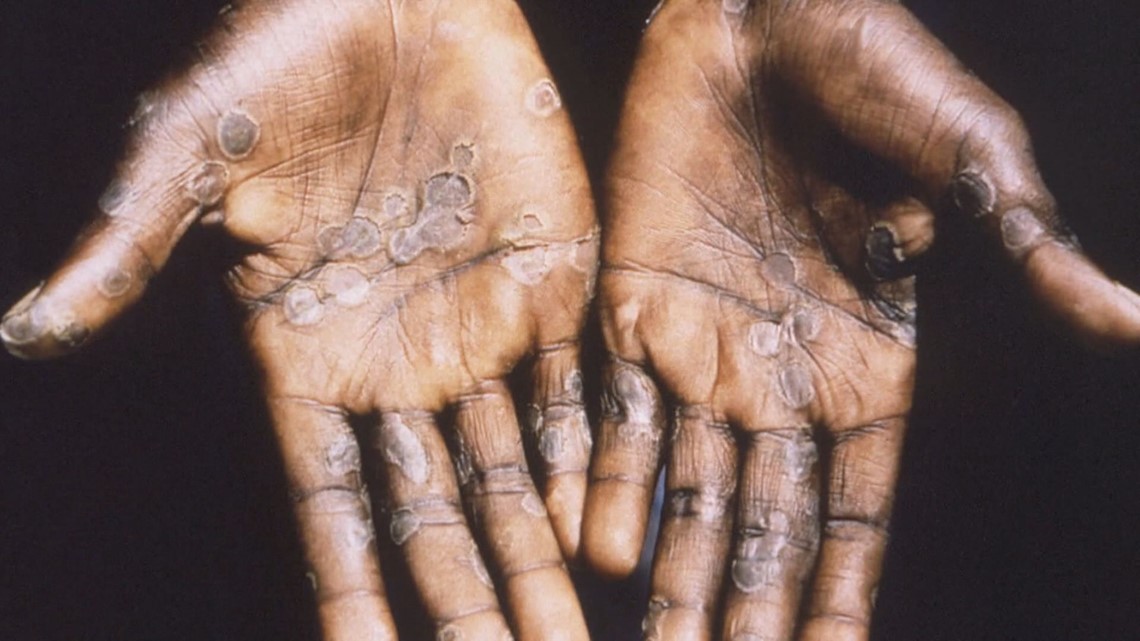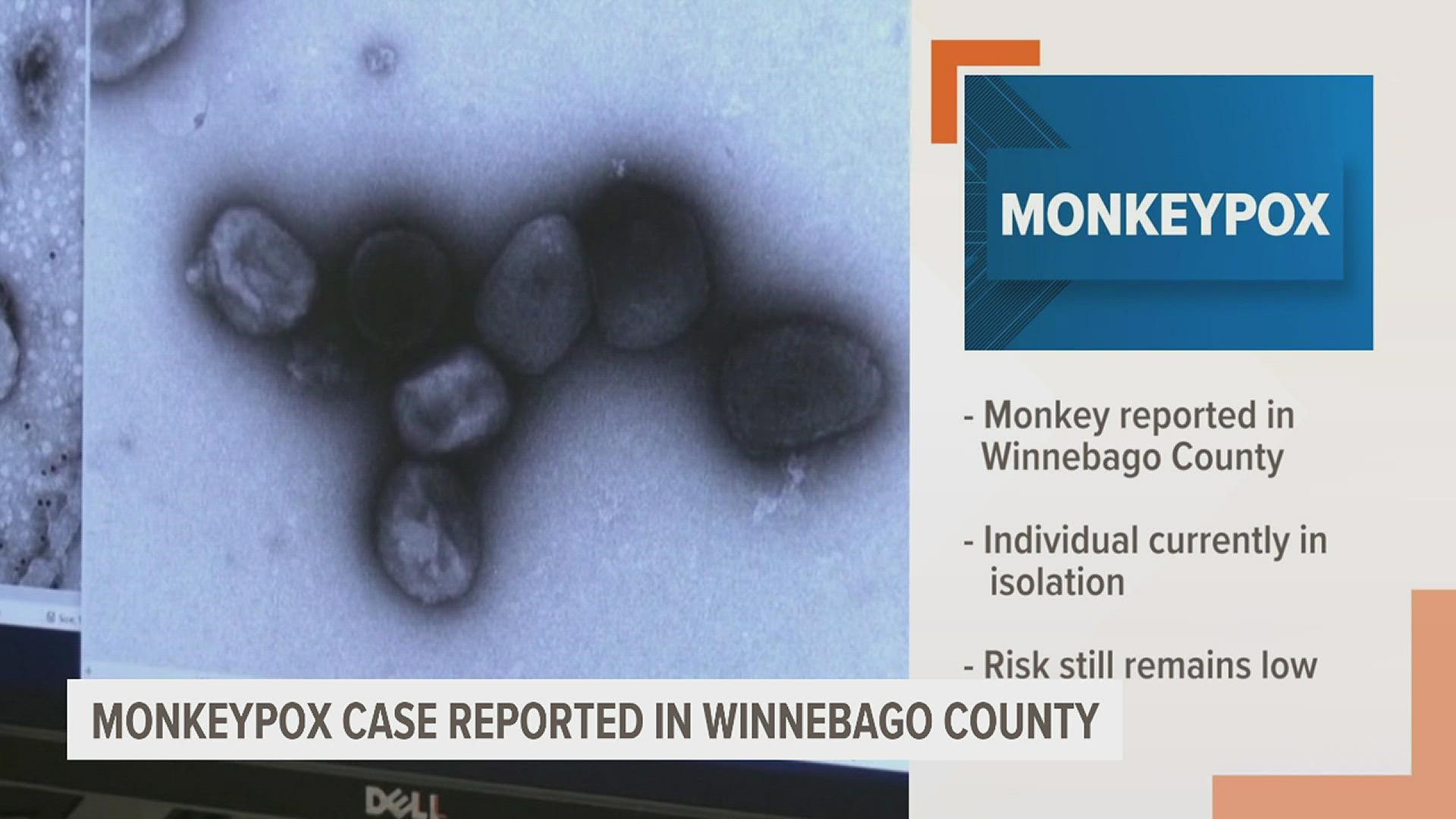MOLINE, Ill. — The Centers for Disease Control and Prevention reported 3,487 monkeypox cases across the U.S. as of Monday, July 25. Data as of Tuesday, Aug. 9, shows that the number has nearly tripled.
The CDC reports 9,492 cases across the U.S. Iowa is reporting 13 cases while Illinois is reporting 701.
On Aug. 10, the first case of monkeypox in the Illinois Department of Public Health Rockford region, which includes Whiteside and Lee counties. The case was detected in Winnebago County, according to the county's health department.
The Winnebago County Health Department reported the individual is isolated at home and is recovering. The risk to other residents in the county remains low.
Monkeypox case numbers may not be reflective of the disease's actual presence, though, as the CDC encourages and doesn't require local health departments to report data on monkeypox infections.
The World Health Organization declared monkeypox a global health emergency on July 23 after outbreaks occurred in more than 70 countries, including the U.S. Similar alerts were made for the 2016 Zinka virus, COVID-19 and the 2014 Ebola outbreak, the Associated Press reported.
On Aug. 1, Illinois Gov. J.B. Pritzker declared monkeypox a public health emergency.
What is monkeypox?
Monkeypox, according to the Centers for Disease Control and Prevention, is a rare disease that is part of the same family as the variola virus, which causes smallpox. However, symptoms of monkeypox are milder than smallpox, and the disease is rarely fatal.
The disease is very rare in the U.S. because it doesn't naturally occur in the country, but cases have occurred in connection to international travel or importing animals from areas where monkeypox is more common. No deaths have been linked to the current outbreak in the U.S.
What are the symptoms of monkeypox?
Monkeypox symptoms usually start within three weeks of exposure. Symptoms can include fever, headache, swollen lymph nodes, chills, muscle aches, exhaustion and a rash that can look like pimples or blisters on the face, inside the mouth and other parts of the body.


How does it spread?
The illness, which lasts between two to four weeks, can spread from the time symptoms start until the rash is fully healed and a fresh layer of skin has formed. It can spread in the following ways:
- Direct contact with the infection rash, scabs or bodily fluids.
- Respiratory secretions through prolonged face-to-face contact or intimate physical contact.
- Touching items that previously touched the infectious rash or body fluids.
- Pregnant people can also spread the virus through the placenta to their fetuses.
Tips for prevention:
The CDC recommends taking the following steps to reduce your risk of exposure to monkeypox:
- Avoid close, skin-to-skin contact with people who have a rash that looks like monkeypox.
- Limiting your number of sex partners.
- Do not handle the bedding, towels or clothing of a person with monkeypox.
- Wash your hands often with soap and water or use an alcohol-based hand sanitizer.
If you're the one sick with monkeypox, isolate yourself at home, stay away from people or pets you live with when possible and follow the treatment and prevention recommendations of your health care provider.
Is there a vaccine? Do I qualify?
According to the CDC, there are two vaccines licensed by the U.S. Food and Drug Administration to prevent monkeypox infection: JYNNEOS and ACAM2000.
There is a limited supply of JYNNEOS in the U.S., but more are expected to be distributed to states in the coming weeks and months. The supply of ACAM2000 is ample, but the vaccine isn't advised for those with health conditions, such as a weakened immune system or pregnancy.
Currently, the CDC only recommends the vaccines for those who are notified of close contact through contact tracing or case investigation or those presumed to be a contact because they meet the following criteria:
- Know that a sexual partner in the past 14 days was diagnosed with monkeypox.
- Had multiple sexual partners in the past 14 days in a jurisdiction with known monkeypox.
There is no data yet available on the effectiveness of the vaccines amid the current monkeypox outbreak, according to the CDC.

